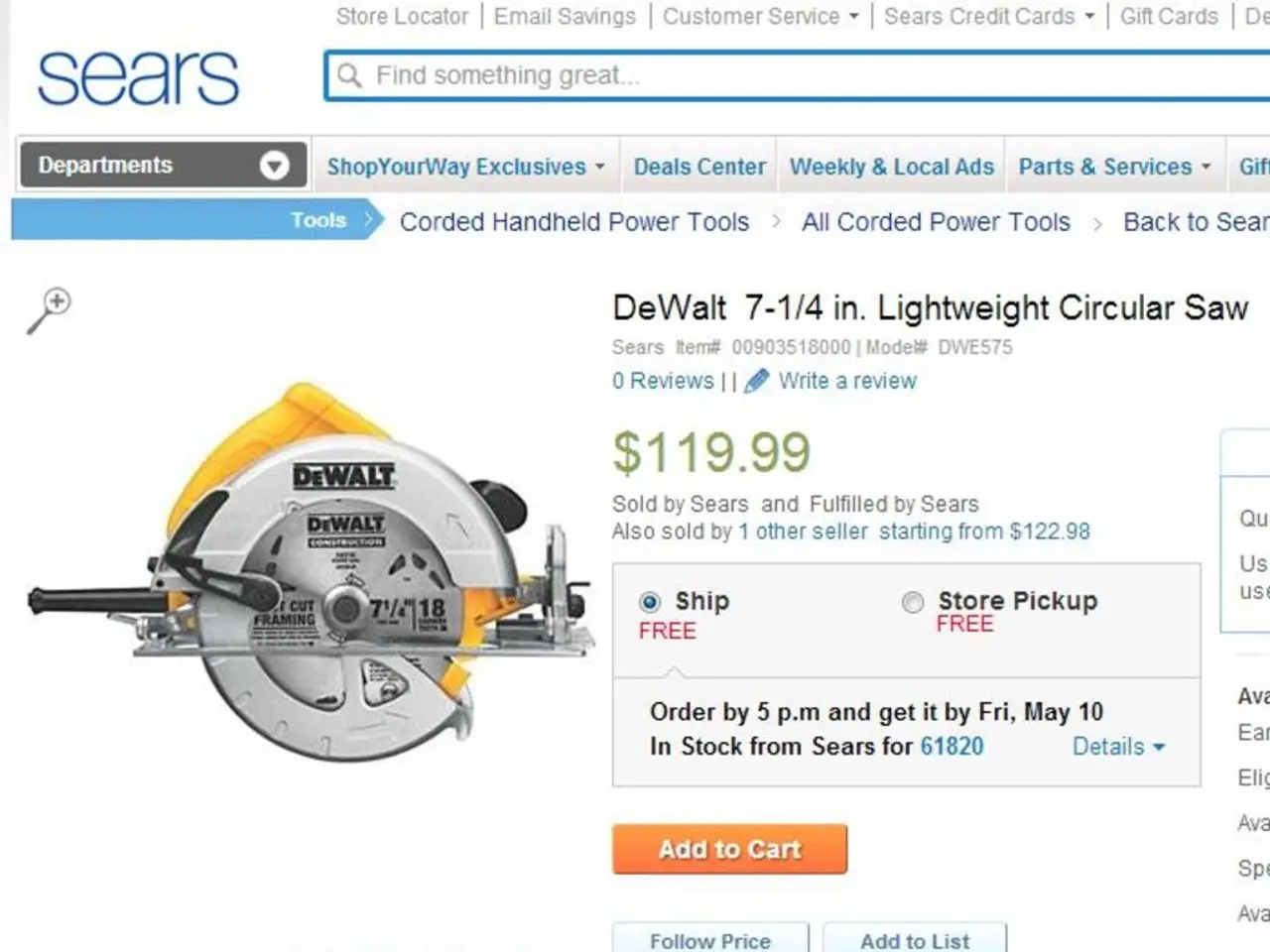Under Trump's proposed tariff scheme, various items might experience a notable hike in price.
The products most susceptible to price hikes due to President-elect Trump's proposed tariffs are primarily those with minimal tariffs at the moment and predominantly originating from China, as per a study conducted by the Peterson Institute for International Economics and shared first with CNN on Thursday.
In essence, the study states that new tariffs will inevitably incur additional costs for the United States.
To illustrate, the major burden of import taxes would mostly impact machinery, electronics, and electrical machinery, according to the Peterson Institute's analysis of existing trade flows and tariff rates. This is because these products are heavily sourced from China, enjoying lower tariff rates.
On the political campaign trail, Trump advocated for boosting tariffs up to 60% on China and imposing tariffs of up to 20% on the entire $3 trillion worth of US imports. Post his election, Trump has threatened to impose immediate tariffs of 25% on Canada and Mexico, which is part of his high-risk strategy to utilise import taxes to enforce actions against issues such as drug trafficking and illegal immigration.
However, it remains uncertain whether Trump will actually enforce these tariffs or if agreements can be made to prevent their implementation.
In a statement to CNN, Karoline Leavitt, spokesperson for the Trump-Vance transition team, said that Trump's previous tariffs on China had created jobs, encouraged investment, and resulted in no inflation.
The Peterson Institute's research revealed that consumers will have to endure increased expenses for imported goods, such as electronic devices, playthings, and sports equipment. Additionally, businesses will have to pay new taxes to import transportation machinery, chemicals, and other commodities.
Toys and footwear are particularly vulnerable to Trump's tariff threats. An astonishing 99% of shoes purchased in the United States are imported, as reported by the Footwear Distributors & Retailers of America, a trade association that represents companies like Nike, Steve Madden, Cole Haan, among others. Over half (56%) of the shoes sold in the United States are manufactured in China, according to the trade association.
Similarly, the United States also depends on China for toys and sports equipment, such as footballs, soccer balls, and baseballs, getting 75% of its imported toys and sports equipment from China. The report noted that replicating China's dominant position in toymaking to meet US product safety standards would be challenging.
Trump's proposed tariffs on Mexico and Canada would have the most significant impact on prices for automobiles, vegetables, petroleum products, prepared food, and animal products, according to the Peterson Institute. The United States relies heavily on Mexico for 89% of its imported avocados and 91% of foreign-grown tomatoes, as per the US Department of Agriculture.
As a result, higher tariffs on Mexico and Canada would exert upward pressure on US food prices, the Peterson Institute's report stated.
During his campaign, Trump pledged to decrease prices, claiming that his tariff strategy would not ignite inflation. However, during a recent NBC interview, Trump refused to guarantee that American families would not face higher costs due to his tariffs.
“I can’t guarantee anything. I can’t guarantee tomorrow,” Trump said. “But I can say that...I had a lot of tariffs on a lot of different countries, but in particular China. We took in hundreds of billions of dollars and we had no inflation.”
(Inflation did occur during Trump's first term, albeit not excessively high.)
However, mainstream economists continue to warn that ultimately, consumers will bear the brunt of the tariffs. Retail giants like Target, Wal-Mart, AutoZone, and Columbia Sportswear have hinted at passing along the increased costs of higher tariffs to consumers in the form of higher prices.
The Peterson Institute's research concluded that the ultimate impact on prices would rely on import demand and supply shifts, but there is substantial evidence pointing to the complete transfer of tariffs to importers during the US-China trade war.
“American consumers and businesses will shoulder the effect of higher tariffs, incurring substantial costs for the average American household, and a burden that falls more heavily on lower-income households,” the Peterson Institute researchers concluded.
Businesses in the United States will likely face increased costs due to new taxes on imported goods, such as transportation machinery, chemicals, and other commodities, as a result of President-elect Trump's proposed tariffs. Consumers may also end up paying more for imported goods like electronic devices, toys, and footwear, which are heavily sourced from countries like China.




